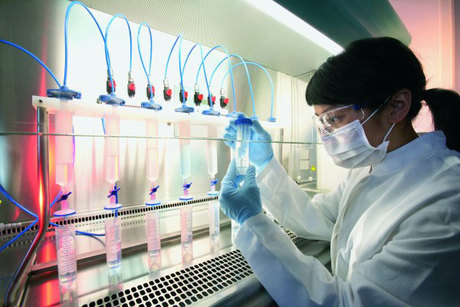Allied Healthcare explores new tissue engineering applications

Allied Healthcare (ASX:AHZ) is broadening the horizons of its ADAPT tissue engineering technology beyond the heart with positive trial results showing it could have application in hernia repair and pelvic floor reconstruction.
The technology is a platform that can produce implantable tissue patches for use in various soft tissue repair applications and is behind the company’s CardioCel patch for repairing paediatric heart deformities.
One of the features of ADAPT that Allied touts is its ability to avoid calcification post implantation, something observed in this study.
The study employed an experimental model of hernia repair and pelvic floor reconstruction and found no macroscopic evidence of calcification or visible immunological responses in the explanted ADAPT-treated tissue at the end of the six month study period.
The ADAPT tissue also demonstrated an improved outcome than the comparable synthetic implant in that it remained stable and intact rather than synthetic, which tended to shrink and contract.
Allied is exploring ADAPT for applications outside of CardioCell, which is currently undergoing phase II human trials.
“These results are significant in building further revenue in areas outside of CardioCel for cardiovascular applications,” said Lee Rodne, Allied Healthcare Group Managing Director.
“These externally validated results for hernia repair and pelvic floor reconstruction, along with the recent regenerative results for CardioCel, indicate a very positive path to significant revenue growth for Allied Healthcare Group,” said Bob Atwill, Allied Executive and CEO of the Regenerative Medicine Division.
The study was undertaken in collaboration with gynecologist, Professor Jan Deprest, from The University of Leuven in Belgium.
Allied is planning to present the full data at an international scientific meeting and publish the study results in a peer reviewed publication in the near future.
Allied Healthcare (ASX:AHZ) shares gained 5% to 2.2c as of around midday.
Could this biosensor bypass labs with onsite PFAS detection?
La Trobe University has developed a portable biosensor that may allow rapid, onsite detection of...
How a tiny worm changed a decade of scientific thinking
A tiny roundworm has helped University of Queensland scientists rethink the way sensory nerve...
A scientist, a cooler and a long-haul flight in the fight against MND
Early in January 2026, neuroscientist Dr Rachael Dunlop boarded a flight from Sydney to the US...



